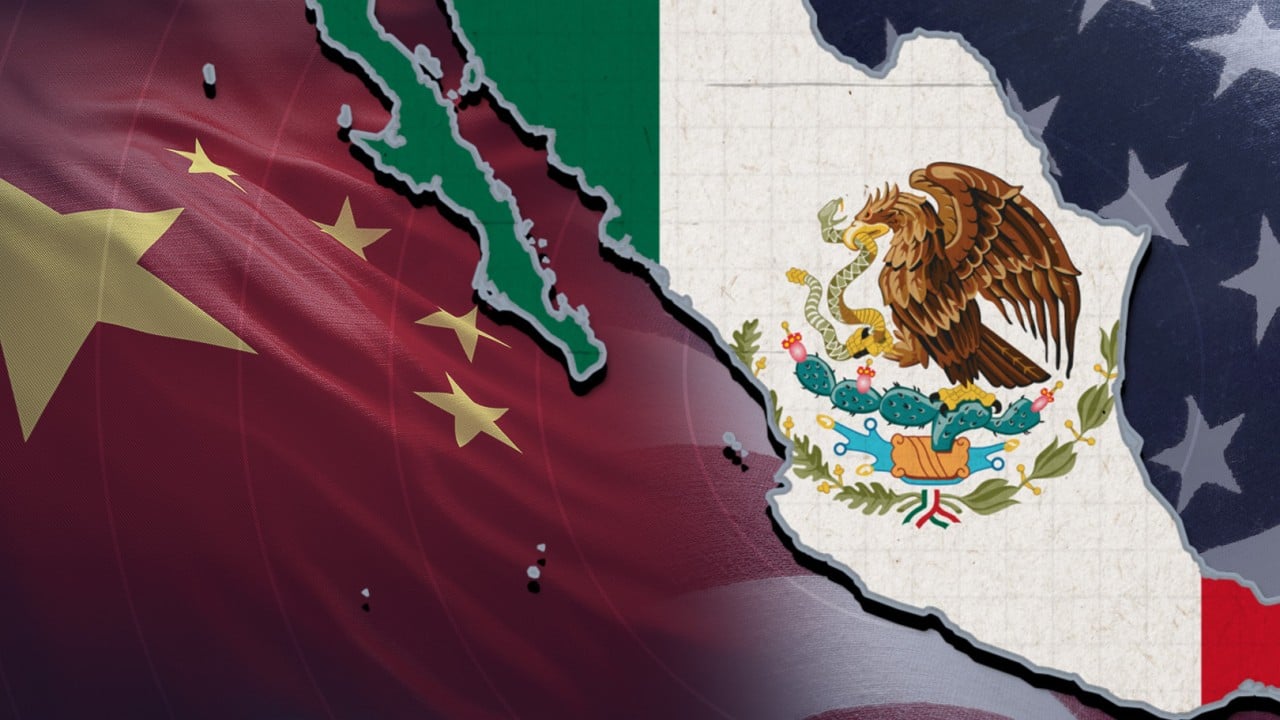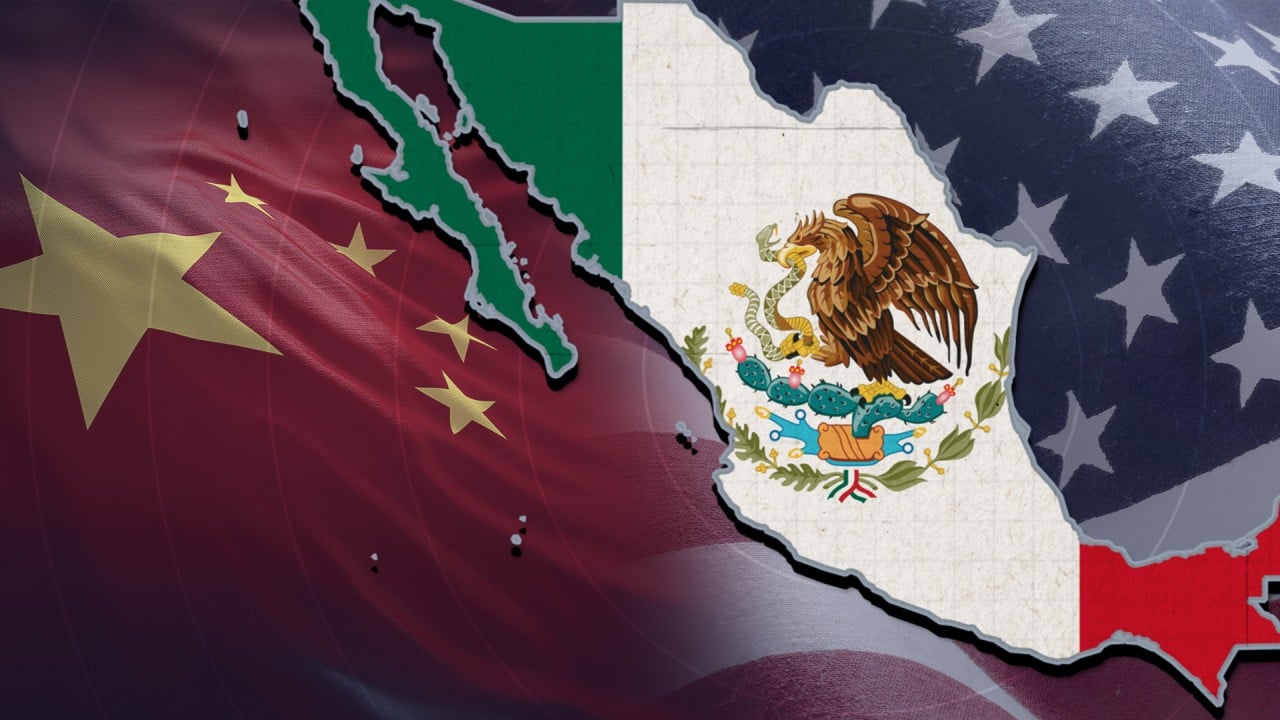Tariffs imposed by the Mexican government serve to incentivise Chinese companies to invest and produce in Mexico – a “natural partner” for China to export its manufacturing capacity overseas, according to Mexico’s envoy to the country.
And Chinese companies investing in Mexico need not be worried about the rising wariness or even threats from the United States, as their legitimate rights are protected under Mexico’s legal framework, ambassador Jesús Seade told the South China Morning Post.
“Mexico needs diversification of its political, economic and commercial basket, and China is a key actor of that and a good friend for Mexico,” Seade said.
While it is crucial for Mexico City to maintain a good relationship with Washington, which has a huge influence – politically, economically and culturally – on Mexico, it is equally important to have a very good relationship with the rest of the world, he said.
The Latin American country has increasingly become a hot destination for Chinese companies venturing overseas in recent years, thanks to an ongoing restructuring of US-China trade and Washington’s nearshoring strategy.
When [China and the US] disagree and introduce measures that do not help each other … that is bad news for [Mexico]
Under the United States-Mexico-Canada Agreement (USMCA), a free-trade pact between the three countries that came into effect in 2020, products produced in Mexico that meet certain rules of origin can be exported to the US without tariffs.
That put Mexico at a big advantage, as products shipped directly from China faced much higher tariffs – many of which have been in place since the trade war initiated by former US president Donald Trump.
Last year, Mexico became the US’ biggest source of imports, ending China’s 17-year streak with that title.
But Seade, who was Mexico’s top trade negotiator for the USMCA, said tensions between China and the US are “bad news” for Mexico.
“Some people think it should be good news, because if the US is angry with China, they will buy from Mexico. That’s nonsense,” Seade said.
“The United States is our first business partner … China is our second business partner,” he explained.
“We thrive when our two partners thrive. When our two partners disagree and introduce measures that do not help each other, the growth of the two partners suffers, and that is bad news for us.”
Trade between China and Mexico has been soaring of late. Annual growth in container shipping between China and Mexico increased by 34.8 per cent in 2023, compared with just a 3.5 per cent jump in 2022, according to shipping data platform Xeneta.
In the first seven months of this year, the total trade value between the two countries reached US$63.6 billion, up 12.4 per cent compared with the same period in 2023, according to data from China Customs.
But it started to rain on the parade in April, when Mexico imposed temporary tariffs between 5 and 50 per cent on the import of 544 products – including steel, textiles, footwear and electronics – from countries without free-trade pacts with Mexico. And China, given its larger trade volume with the country, has been most affected.
The tariff hikes were enacted not because of pressure from the US, but because the trade imbalance between Mexico and China “looks bad, politically”, Seade said.
We prefer Chinese companies to produce in Mexico, provide employment in Mexico and bring technology, rather than exporting the goods in a cold way
China has maintained its position as Mexico’s second main supplier, with the value of products imported reaching US$114 billion in 2023, while the total value of Mexico’s exports to China was US$10.1 billion – creating a US$104 billion deficit in the bilateral trade relationship, according to data from Bank of Mexico.
“In relation to the United States, they would prefer us to work only with the United States, but we are clear we don’t want to do that,” Seade said. “On the contrary, we are eagerly working on attracting Chinese partnership and Chinese investment.
“It is just that we prefer Chinese companies to produce in Mexico, provide employment in Mexico and bring technology, rather than exporting the goods in a cold way that brings no other benefit than the goods themselves.”
Thus, tariffs can be seen as an “encouragement” for Chinese companies to invest and produce in Mexico, which would help rectify the outsized trade deficit, he added.
Still, the notion of balanced trade should be considered carefully, he said, as exported products from Mexico often contain Chinese parts.
“If we double our exports, we will probably double our imports from China. That has nothing to do with a trade imbalance,” he said, adding that while there are legitimate reasons behind that imbalance, “to the public, it looks bad. We need to address it.”
We are negotiating with China very actively almost every day
Increasing exports to China is the other way, Seade said. China is currently the third-biggest destination for Mexican exports, after the US and Canada, with products mainly comprising minerals and agricultural products.
“There are lots of further exports we want to make. We are negotiating with China very actively almost every day,” he said.
Exports to China of some Mexican products – such as avocados – lag behind those from Peru and Chile, which have free-trade agreements and can trade under zero tariffs with the Asian country.
Despite a surge in interest from Chinese companies, overall investment from China in Mexico is still just a fraction of what comes from countries such as the US.
In 2023, China was not even among the top 10 investors in Mexico – though the number may be underestimated, as some Chinese companies have used their overseas subsidiaries to invest in Mexico to avoid being officially labelled a “Chinese investment”.
Among all foreign investment, Chinese investment in Mexico is particularly welcome, Seade said, because “China is the engine of growth, globally, and it’s such a fantastic manufacturer and also a source of technology”.
Mexico is a “natural partner” for Chinese investment, with its relatively young population, a long tradition of manufacturing, and a 3,145km (1,954-mile) border with the world’s biggest economy, he added.
“China needs big production bases around the world, and in particular, on the other side of the world. If you look at the world map, Mexico is at the centre of the rest of the world. So, it is an ideal location for Chinese investment.”
Currently, most Chinese plants in Mexico are located in the country’s northern states, where there has been a shortage of water and electricity. Thus, new investors are encouraged to discover the other states in the south, he added.
“We want Chinese companies to bring not only manufacturing and technology, but to actually partner up with Mexican institutions in creating that technology through research and development activities,” Seade said.
However, with the US having become increasingly wary of the closer engagement between China and Mexico, many Chinese manufacturers that have already set up plants in Mexico feel as though they are treading on thin ice.
So far, the loudest voice has come from Trump, the 2024 Republican nominee, who has repeatedly complained about Chinese firms building factories in Mexico and selling products to the US.
When investing in Mexico, you need to have certain standards of transparency
But ramping up rhetoric against China has long been a two-party game in the US, and just last month Democratic President Joe Biden seized on a chance to get tougher on trade by taking steps to prevent China from avoiding US tariffs on some imports routed through Mexico.
This came after US Treasury Secretary Janet Yellen visited Mexico in December to strengthen cooperation on security and financial issues, with the two sides agreeing to establish a mechanism to monitor and screen foreign investments in the country.
The mechanism is intended to prohibit companies from skirting tariffs by taking advantage of the USMCA, as there have been allegations of Chinese companies bringing inputs from China but presenting them as being of Mexican origin to qualify for the rules of origins, Seade said.
“We also don’t like bypassing the rules,” he said. “These are just questions of effectively applying the rules that already exist in Mexican law, including the USMCA, which is part of Mexican law.
“When investing in Mexico, you need to have certain standards of transparency.”
Chinese companies should not be worried, as long as they ensure strict compliance with the rules, as the monitoring mechanism can provide more legal certainty for their investment, he said.
“The law is there to protect all our companies, including those originally from China.”



